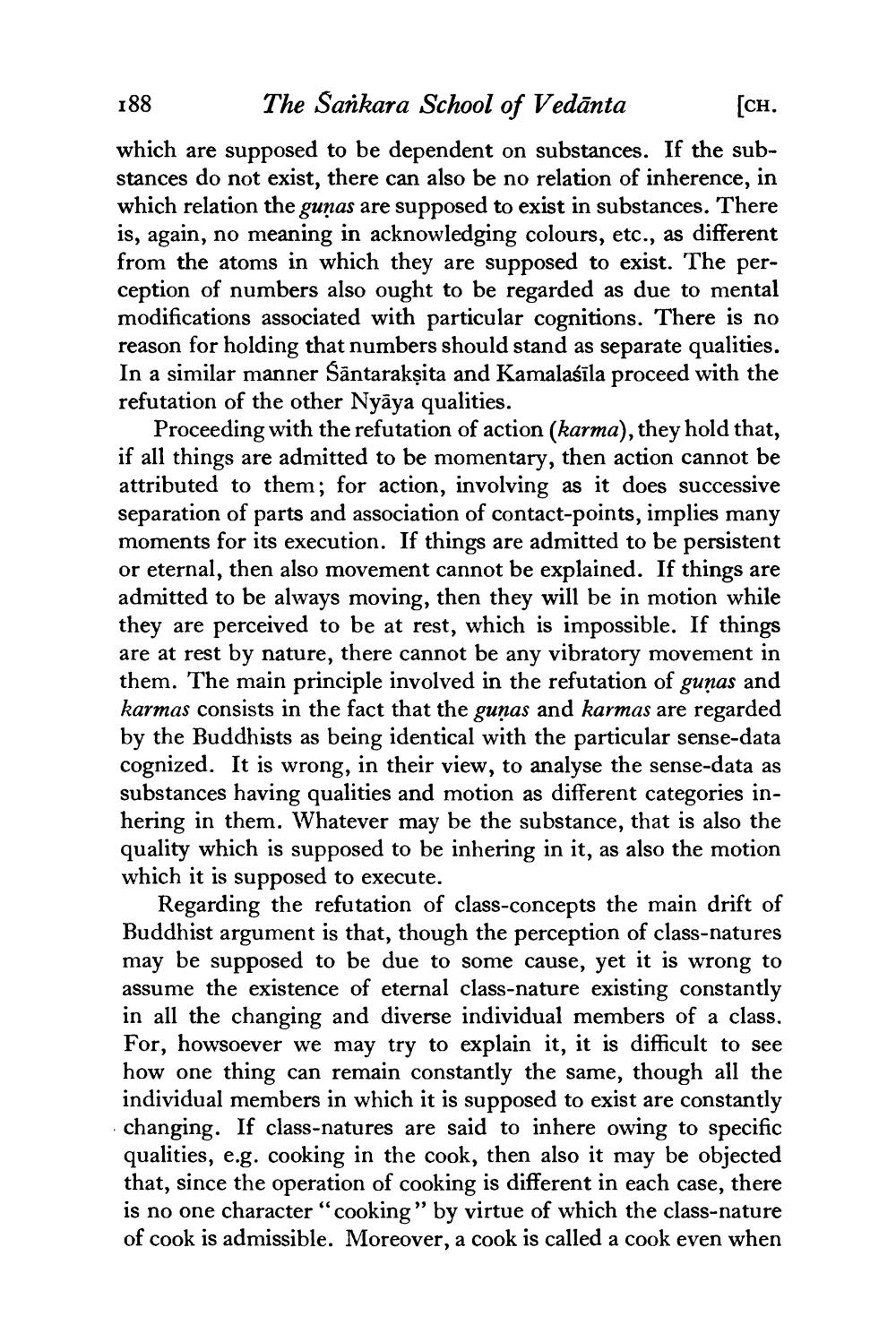________________
188
The Sankara School of Vedānta
CH. which are supposed to be dependent on substances. If the substances do not exist, there can also be no relation of inherence, in which relation the guņas are supposed to exist in substances. There is, again, no meaning in acknowledging colours, etc., as different from the atoms in which they are supposed to exist. The perception of numbers also ought to be regarded as due to mental modifications associated with particular cognitions. There is no reason for holding that numbers should stand as separate qualities. In a similar manner śāntarakṣita and Kamalaśīla proceed with the refutation of the other Nyāya qualities.
Proceeding with the refutation of action (karma), they hold that, if all things are admitted to be momentary, then action cannot be attributed to them; for action, involving as it does successive separation of parts and association of contact-points, implies many moments for its execution. If things are admitted to be persistent or eternal, then also movement cannot be explained. If things are admitted to be always moving, then they will be in motion while they are perceived to be at rest, which is impossible. If things are at rest by nature, there cannot be any vibratory movement in them. The main principle involved in the refutation of gunas and karmas consists in the fact that the gunas and karmas are regarded by the Buddhists as being identical with the particular sense-data cognized. It is wrong, in their view, to analyse the sense-data as substances having qualities and motion as different categories inhering in them. Whatever may be the substance, that is also the quality which is supposed to be inhering in it, as also the motion which it is supposed to execute.
Regarding the refutation of class-concepts the main drift of Buddhist argument is that, though the perception of class-natures may be supposed to be due to some cause, yet it is wrong to assume the existence of eternal class-nature existing constantly in all the changing and diverse individual members of a class. For, howsoever we may try to explain it, it is difficult to see how one thing can remain constantly the same, though all the individual members in which it is supposed to exist are constantly changing. If class-natures are said to inhere owing to specific qualities, e.g. cooking in the cook, then also it may be objected that, since the operation of cooking is different in each case, there is no one character "cooking" by virtue of which the class-nature of cook is admissible. Moreover, a cook is called a cook even when




